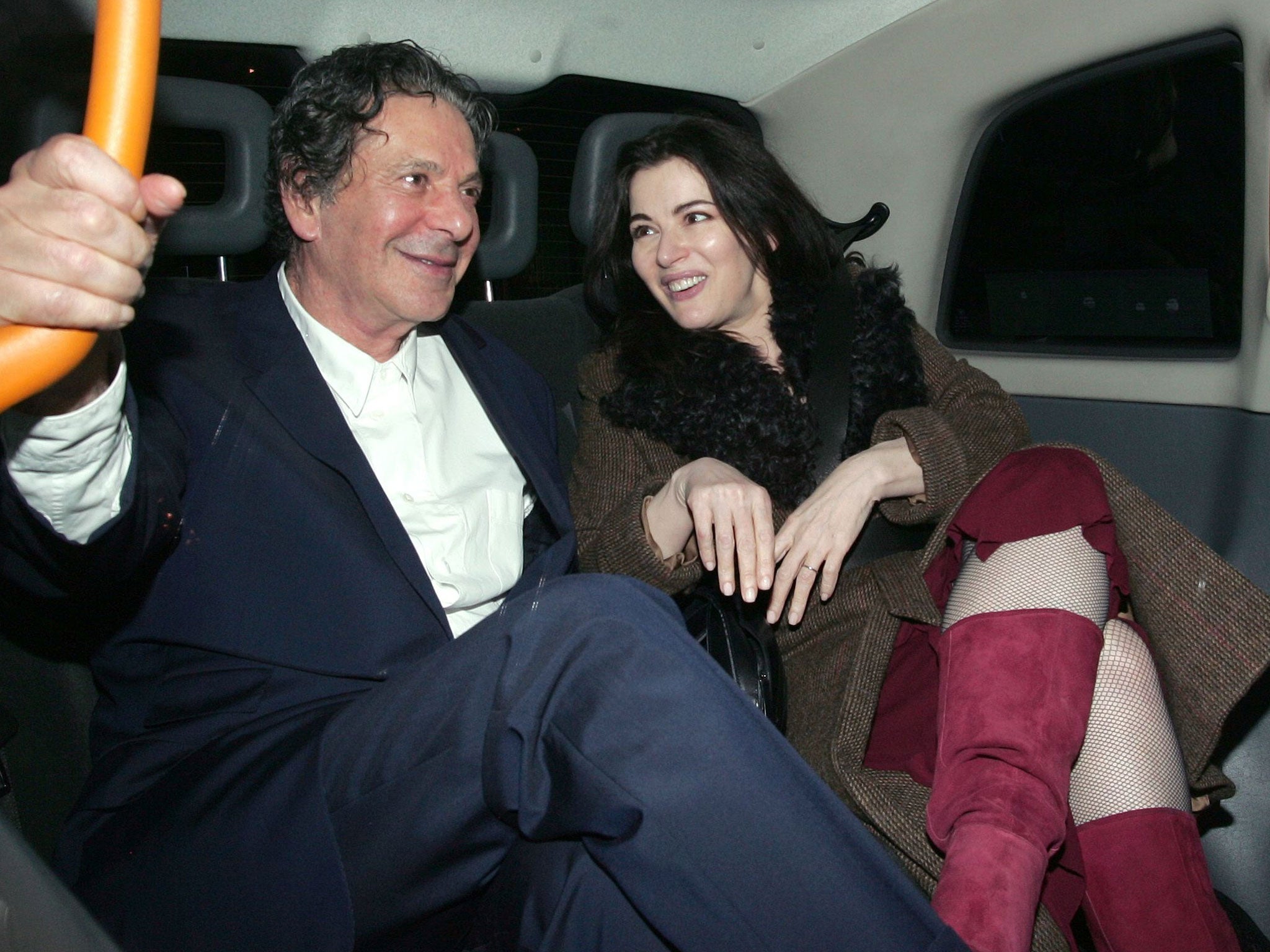Nigella Lawson and Charles Saatchi: Though they have more money, the rich are not so different
As has been shown all too vividly, the rich remain human, with everything that brings


For those with a memory for such things, the trial of the Grillo sisters bears an eerie similarity to that of Joyti De-Laurey in 2004.
De-Laurey was the personal assistant who took £4.3m from Goldman Sachs bankers Jennifer Moses and Scott Mead, as well as Moses’s husband Ron Beller. Then, as in the past few weeks, we were left agog at the lifestyles of the super-rich and how they did not miss millions of pounds from their bank accounts.
In the Grillo case, it was not until the sisters had racked up £685,000 on the family credit card that Charles Saatchi noticed the extent of their spending. With De-Laurey, it was only when Mead realised he did not have enough in his account to cover a six-figure donation to his Harvard alma mater that her theft was discovered.
Whenever wealthy folk are discussed, two observations are commonly made: one is that they are different; the other is that they did not amass more money than the rest of us by being careless with their spending.
The first derives from F Scott Fitzgerald: “The very rich… are different from you and me.” It’s true they lead a lifestyle that seems alien to the rest of us. They lavish sums that to us appear extraordinary: the Saatchi children received £80 a week in pocket money; £120 for a night out.
But for all the shiny veneer, the lustre of success (in a society that all too readily and increasingly defines achievement in terms of material gain), they’re the same as you and me. No amount of cash can banish human frailties. So we saw starkly exposed the brooding, hectoring, isolated figure that is Charles Saatchi. We witnessed his ex-wife, a celebrity cook, reduced to admitting she took drugs after her first husband, John Diamond, discovered he had terminal cancer.
I met Mead recently. We discussed his love of photography. I could have been talking to anyone with a passion for the camera, not a former Master of the Universe who was once making so much that he failed to spot that some of it was vanishing.
But this is where the rich diverge: I was meeting Mead in The Photographers’ Gallery in Soho, where he is chairman of the trustees. We take pictures and put them in an album; he takes pictures, but moves among great photographers and oversees one of the world’s leading exhibition spaces.
Likewise, Charles Saatchi and Nigella Lawson operate on another level, one that is beyond our attainment. All the time, though, as with Mead, they’re defined by ambition. Mead is not content just to snap away; Saatchi can’t just hang a few paintings on his walls; Lawson is not happy with being a bestselling cookery writer and TV chef only in the UK – she has to conquer America.
It is that drive that governs their waking moments. Saatchi writes a book. He is not able to relax and let people buy it; he is not even prepared to take a chance and let his well-known name sell it for him. Instead, he instructs his staff to go out and buy copies, and push it up the charts. He has to be top in everything he does, must be number one.
It’s the same with Mead and his colleagues in banking. Mead led the team advising on Vodafone’s $200bn purchase of Mannesmann, then the world’s biggest takeover deal. On that transaction, he would not miss a cent; he was across every aspect of the acquisition. Payments could be made from his personal accounts and he would not notice; what mattered more was being a kingpin in his working life, raking in enormous commissions and earning the plaudits of his peers.
That’s why the second observation about the rich, that they did not get where they are by being careless with their spending, holds true. Anything that may impact on their reputation, their future money-making, is treated with caution. It’s analysed and dissected, and deliberately planned. Everything else is peripheral, and that includes the contents of their current bank accounts or the detail of their credit card bills.
But, as has been shown all too vividly during the trial of the Grillo sisters, the rich remain human, with everything that brings.
In The Snows of Kilimanjaro, Ernest Hemingway mocks the words of his friend F Scott Fitzgerald: “The rich… were dull and they drank too much, or they played too much backgammon. They were dull and they were repetitious. He remembered poor Scott Fitzgerald and his romantic awe of them and how he had started a story once that began, ‘The very rich are different from you and me.’ And how someone had said to Scott, ‘Yes, they have more money.’ But that was not humorous to Scott. He thought they were a special glamorous race and when he found they weren’t it wrecked him as much as any other thing that wrecked him.”
Chris Blackhurst is Group Content Editor of The Independent, i, The Independent on Sunday and Evening Standard - and former Editor of The Independent.
Join our commenting forum
Join thought-provoking conversations, follow other Independent readers and see their replies
Comments
Bookmark popover
Removed from bookmarks